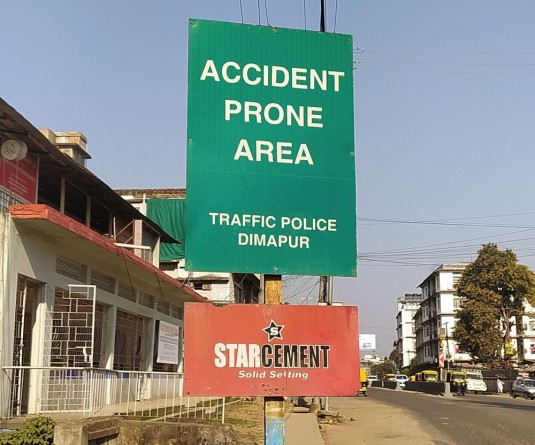
National Health Mission, Department of Health & Family Welfare, Kohima, Nagaland.
Reduction of childhood mortality is one of the prime goals of National Health Mission and millennium Development Goals. Childhood diarrhoeal disease continues to be one of the major killers among under five children in many states contributing to 11 percent of under five deaths in the country. Around 2 lakh children die due to diarrhoea annually in the country. Diarrhoeal deaths are usually clustered in summer and monsoon months. The worst affected are malnourished children and children under two years of age. To effectively address the issue, Intensified Diarrhoea Control Fortnight (IDCF) was implemented in 2014, with the aim of achieving improved coverage of essential life-saving commodities like ORS and zinc dispersible tablets and practice of appropriate child feeding practices during diarrhoea. IDCF also focuses on the preventive aspects like sanitation and hand washing. The state has decided to hold the annual IDCF from 12th June to 24th June 2018, with the ultimate aim of achieving zero child deaths due to diarrhoea. As per NFHS -4, the usage of a live saving commodity like ORS during diarrhoeal episodes in the state is only 43.5 % in Urban and 40.8% in rural areas respectively.
What is Diarrhoea and how can it be prevented?
Diarrhoea is considered when the stools have changed from usual pattern and are many and watery (more water than faecal matter). Almost all the deaths due to diarrhoea can be averted by preventing and treating dehydration by the use of ORS (Oral Rehydration Solution) and administration of Zinc tablets along with adequate nutritional intake by the child during diarrhoea. Diarrhoea can be prevented with use of safe drinking water, hand-washing, sanitation, immunization and breastfeeding / appropriate nutrition.
What is IDCF? How is it implemented?
Intensified Diarrhoea Control Fortnight (IDCF) consists of a set of activities to be implemented in an intensified manner from 12th to 24th June2018 for prevention and control of deaths due to dehydration from diarrhoea across the state. These activities mainly include- intensification of advocacy & awareness generation activities for diarrhoea management, strengthening service provision for diarrhoea case management, establishment of ORS-Zinc corners, prepositioning of ORS by ASHA in households with under-five children and awareness generation activities for hygiene and sanitation.
Objective and Strategy
1. Goal of IDCF
The goal of IDCF is ‘to attain zero child deaths due to childhood diarrhoea’. The overall objective of IDCF is to ensure high coverage of ORS and Zinc use rates in children with diarrhoea throughout the country along with inculcating appropriate behaviour in care givers for diarrhoea prevention & management of under-five children, with emphasis on the high priority areas and vulnerable communities.
2. Specific objectives of IDCF
- To improve usage of ORS and Zinc for childhood diarrhoea.
- To complement awareness activities (including Swachh) for prevention and management of diarrhoea in under-five children.
3. Strategy for the IDCF
The focus of IDCF is on delivery of simple proven interventions that have large impact towards control of childhood diarrhoeal morbidity and mortality. The IDCF strategy is three folds:
- Improved availability and use of ORS and Zinc at the community
- Facility level strengthening to manage cases of dehydration
- Enhanced advocacy and communication on prevention and control of diarrhoea through IEC campaign.
Overview of IDCF activities for 2018
- At Community / Village Level
- Distribution of ORS (and Zinc) and demonstration at the household level
- Inter Personal Communication (IPC) activities by ANM/ ASHA on hygiene and sanitation along with management of diarrhoea
- Hand washing demonstration in schools
- Mobile health teams for urban areas & hard to reach area.
- At Health Facility Level
- Establishment of ORS and Zinc corners for treatment of diarrhoea
- Promote standard case management of diarrhoeal cases
- Cleaning of water tanks in health facilities, provision of safe drinking water
- Convergence of allied departments
- IDCF involves coming together of different departments like School Education (Hand washing demonstration and provision of safe drinking water), Social Welfare (ORS-Zinc corners in Anganwadi centers and nutrition support) and PHED /PWD (Sanitation and safe drinking water). The civil administration also has a responsibility in bringing all these departments together. Awareness generation needs the active involvement of church, the village health committees, NGOs and the media.



